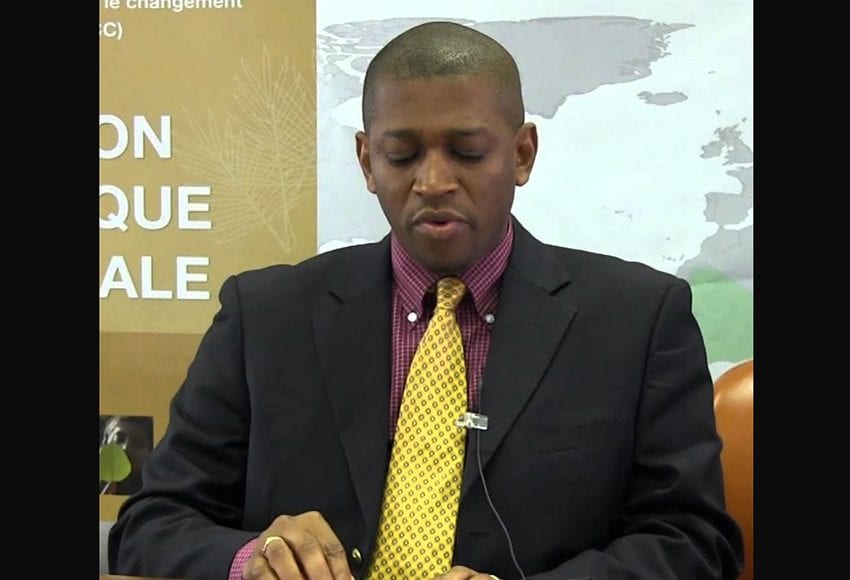Among the top priorities for recently appointed Head of the Government’s Energy Department, Dr. Mark Bynoe is “reducing revenue leakage” or the unnoticed or unintended loss of revenue.
Dr. Bynoe was appointed to lead the department which was set up in August 2018, to focus primarily on the emerging oil and gas sector.
Making his first public speech since his appointment, at the launch of local law firm; Hughes, Fields and Stoby Texas office on Friday, September 28, Dr. Bynoe outlined the direction the Department is seeking to pursue, one which he said is based on “a practical and pragmatic approach” that will safeguard the best interest of Guyanese.
At the ceremony held at the Marriott hotel, Georgetown, he pointed out that the Government has a wide range of options in terms of ownership, control and intervention to develop the sector according to “their ideological orientation, capabilities and political interest.”
He noted that the global oil and gas industry has seen the full spectrum of Government intervention from exclusive ownership and control of the value chain, to the minimalist intervention justified by private ownership of the resources.
In the case of Guyana, Dr. Bynoe said since both the state and the domestic private sector’s capabilities are limited at this stage, the department has taken the approach to prioritise those areas of interventions that Government is likely to have a comparative advantage and seek partnerships with the private sector.
He outlined that the unit which he now heads, is focused on adopting the “best conventionally relevant governance structure and institutional arrangement” to facilitate the optimal development of the country’s hydrocarbon resources.
In the immediate and short term, he said the completion of the much talked about Local Content Policy, the Petroleum Commission Bill and the operationalisation of the Natural Resources Fund –all of which are in advanced stages, will be prioritized.
He added that petroleum exploration and production regulation and legislation along with petroleum taxation and fiscal legislation are also short term priorities.
Aside from policies, the Energy Department is working to have a good understanding of the top side and subsurface mineral deposits through requisite analysis and databases, understand the global trends in market technologies and market structures, regulate the requirement and conditions of explorations and enhance contract administration, Dr. Bynoe noted.
Addressing a room of attorneys and Ministers of Government among other officials, he said “developing an effective and transparent system for allocating production rights and reducing revenue leakage” also falls into the Department’s list of immediate and short term focus along with “developing the domestic capabilities along the value chain through training and mentoring programmes and attachments.”
However, Dr. Bynoe said in order to achieve its objectives in these areas, a variety of expertise and capabilities with strong partnerships and collaboration are needed.
Like many other officials who publicly spoke about the oil and gas sector since the first discovery of petroleum resources offshore Guyana, he touted public- private partnerships as vital.
“Given the magnitude to effectively and efficiently manage the hydrocarbon sector, a mixture of public and private sector engagement would appear most feasible.”
The former Director, School of Earth and Environmental Sciences at the University of Guyana noted however, that there is need to develop the capacity of each citizen for the revenue that will emanate from oil production which begins in 2020.
“The best that we can do for our people is build their capacities so that they can be able to participate in the boom that is projected to come from the oil revenue,” he said.
As such, Dr. Bynoe noted that “the department is keen to ensure that its systems of transparency, and governance remain wholesome for all to have an equal opportunity to participate.”
Noting that change must become a reality, Dr. Bynoe urged that persons continue to build capacity to ensure that, in years to come, there is no need for outsourcing.



